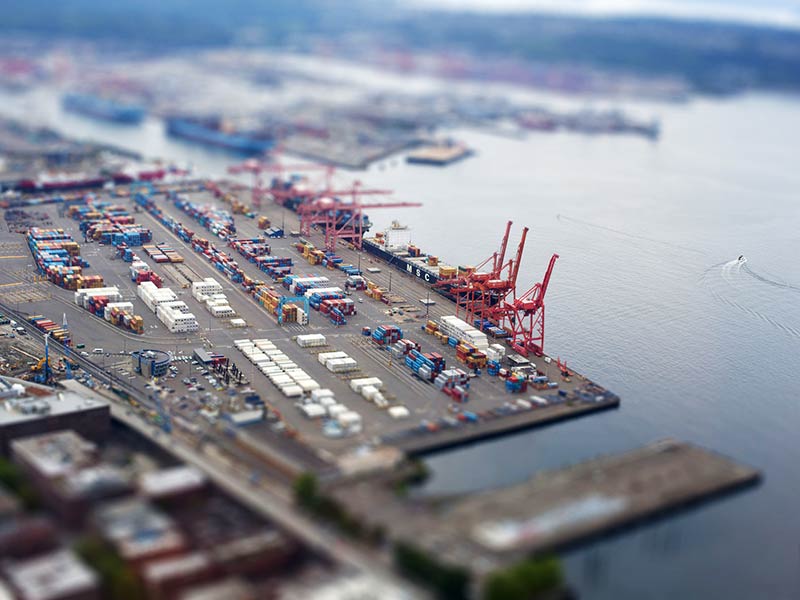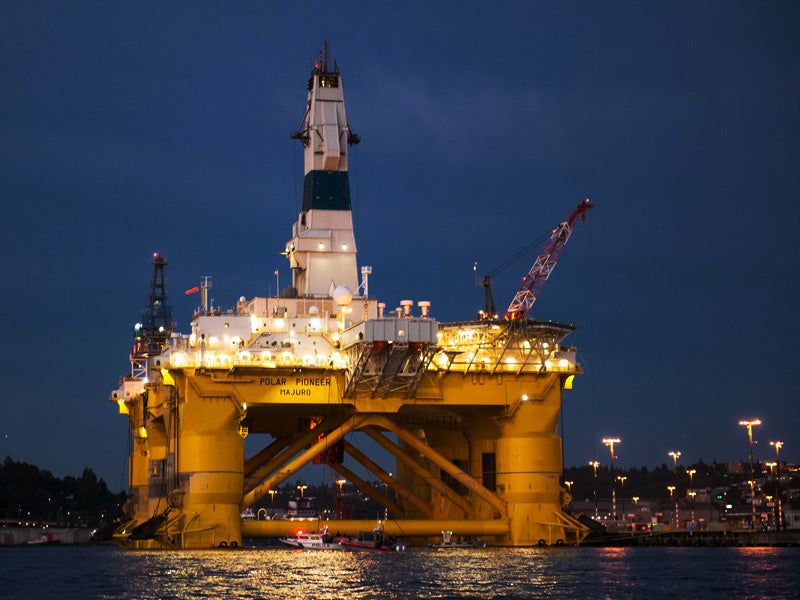Challenging the Port of Seattle’s Decision to Make Seattle a Homeport for Shell’s Arctic Drilling Fleet
The lease would allow Shell’s drill ships to be housed at the Port of Seattle, including for discharging oil-contaminated water in violation of water pollution laws.
Clients
Regional Office / Program
Case Overview
A coalition of conservation organizations have filed a lawsuit against the Port of Seattle and the Port Commissioners, challenging the Port’s entry into a lease with Foss Maritime to open Terminal 5 to Shell’s Arctic drilling fleet without public proceedings or environmental review.
The lawsuit charges that the lease will change the use of Terminal 5 by converting it into a homeport for Shell’s Arctic drilling fleet, which will need extensive maintenance and repairs after being battered in the Arctic conditions. The lease would allow Shell’s drill ships to be housed at the Port, including the Noble Discoverer which was the subject of 8 felony convictions and over $12 million in fines and community service in December of 2014, including for discharging oil-contaminated water in violation of water pollution laws. The lawsuit charges that the Port has violated its long-range plans and its shoreline permit, which designate Terminal 5 as a cargo terminal, not a homeport and that it needed to conduct a public review of the environmental and community impacts of making this change.
The Port conducted the lease negotiations in secret and only revealed the plans to the public after it was a done deal. It circumvented environmental laws and open debate over the use of Terminal 5 by claiming the use would not change from its use as a container terminal over the past several decades.
Shell Oil intends to begin exploration, upon approval of a lease sale and drilling plans, as early as the spring of 2015. According to the Obama Administration’s final supplemental environmental impact statement on the Chukchi Sea in Alaska, released February 12, 2015, there is a 75 percent chance of one or more major oil spills if the Chukchi Sea is developed, and there is no way to clean up or contain such spills. A decision on whether the Administration will end or affirm the Chukchi Sea oil leases for Alaska is expected in late March of 2015.
Shell’s disastrous 2012 Arctic Ocean drilling and transport operations demonstrate that even technically advanced and well-resourced companies are no match for Arctic conditions. The company was investigated and fined after multiple missteps and close calls during its efforts to drill in the Arctic Ocean in 2012. And the Department of Interior conducted a review of Shell’s Arctic drilling operations in which it severely criticized Shell for failing to maintain effective oversight of its contractors. In December 2014, one such contractor, Noble Drilling (US) LLC, pled guilty to eight felony charges and paid over $12 million in fines and community service. Noble operates the Noble Discoverer, one of the two drill ships in Shell’s Arctic fleet. The other drill ship, the Polar Pioneer, is operated by Transocean, which paid more than $1.4 billion in criminal and civil fines for its role in the 2010 Macondo oil spill in the Gulf of Mexico. Both drill ships could come to the Port of Seattle under the terms of the lease with Foss Maritime Company.
Earthjustice filed the challenge in King County Superior Court on behalf of Puget Soundkeeper Alliance, The Sierra Club, Washington Environmental Council, and Seattle Audubon Society. The coalition asks the court to vacate the lease because the Port violated the State Environmental Policy Act, its own rules, and the Shoreline Management Act.
Shell’s drilling vessels are expected to arrive in Seattle soon. No precise time is available for the Noble Discoverer, but on April 22, Polar Pioneer reached Port Angeles, just around the corner from Puget Sound and Seattle. On Sunday, April 26, 2015, community members rallied to voice their concerns over the two-year lease with Foss Maritime.

Case Updates
Case page created on March 2, 2015.
